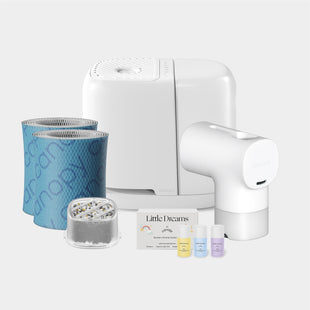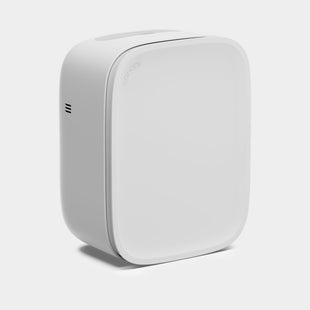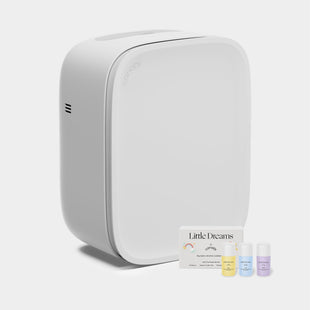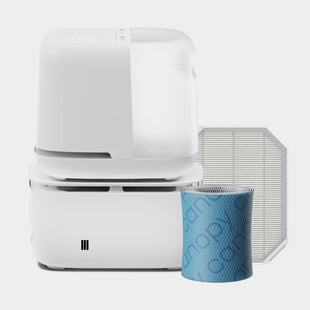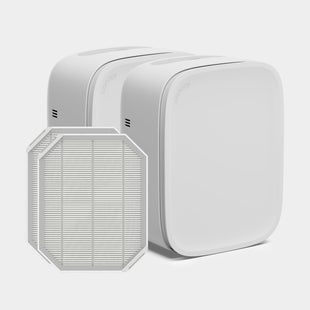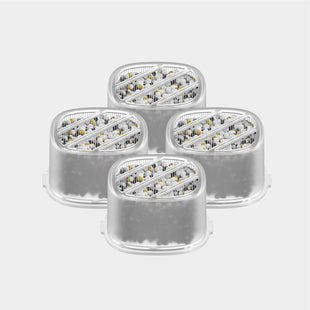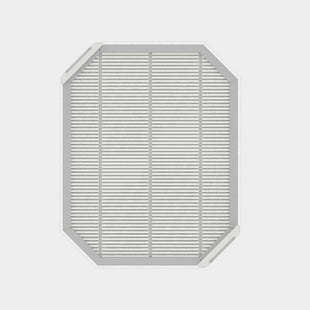Dry nose and throat are a common condition caused by a wide variety of everyday triggers. Geographical location, dry home air, household allergens, and certain medications can lead to dry nasal passage and throat that may produce additional symptoms including dry sinus headache, dry mouth, sore throat, and more.
In the case of severe dry sinus symptoms, you should speak with your doctor immediately. However, for mild dry sinus symptoms, there are plenty o
What are the symptoms of dry sinuses?

Healthy sinuses are effectively lubricated with a liquid substance known as mucus. When the sinuses lack sufficient mucus, you may experience dry nose and throat as a result of inflammation and irritation.
So, how do you know if your dry nose and throat is temporary or whether you suffer from chronically dry sinuses? Dry sinuses can lead to a wide variety of ailments including: dry sinus headache, dry mouth, sinus pain, and more. The entire list of dry sinuses symptoms are as follows:
- Dry nose and throat
- Nasal congestion
- Sore throat
- Dry sinus headache or pain around the eyes
- Red, inflamed nasal passage
- Slightly altered sense of smell
- Frequent sneezing
- Dry mouth
- Nosebleeds
What causes dry nasal passages and throat?
Dry nose and throat can result from a variety of factors including where you live, the humidity levels of your home, your diet, and more. Let’s explore.
Geographical Location
Where you live can impact the condition of your mucus membranes. While our bodies typically adapt to the climate in which we live, that does not eliminate the symptoms that can arise from various climates.
Dry, desert climates can zap moisture from the body and reduce lubrication in the nose and throat. Areas with a high altitude can similarly dehydrate the body as the air in these regions is dry and thin.
Dry Home Air

Regardless of the moisture levels in your geographical location, your home air can be a major culprit for dry nose and throat. 40% to 60% humidity is the ideal humidity range for inside the home; unbeknownst to most, home humidity levels can drop significantly below 40%, around the lower to mid 20’s. Low humidity levels in the home can contribute to dry sinuses, dry skin, flaky scalp, increased susceptibility to colds and the flu, dry eyes, chronic cough, and more.
Common Household and Environmental Allergens
Allergens are all around us, especially in the home. Mold and mildew exposure is common in bathrooms, the kitchen, or the living room while certain flowers, pollen, grass, and more can be swept into your home through your shoes and your clothes. Pet dander is another common household allergen that can trigger allergy symptoms, which often include inflamed and irritated sinuses that can lead to a dry nose and throat, among other symptoms.
Medication Side Effects
Certain over-the-counter medications and doctor prescribed medications can dry out the nasal passage leading to dry sinuses, dry sinus headaches, nosebleeds, and more. Antihistamines are a common culprit for dry sinuses, though overuse of nasal sprays and decongestants can also lead to a dry nose and throat.
When should you call the doctor about your dry sinuses?
Dry sinuses are often a result of the aforementioned triggers and require a few lifestyle tweaks to keep your dry nose and throat in check. Other times, your dry sinuses could be a symptom of a much more serious condition requiring the help of an ear nose and throat (ENT) doctor.
If your dry sinuses are causing you moderate to severe pain, if you have frequent nose bleeds, or if your dry sinuses are accompanied by other health complications, you should contact your doctor immediately.
A persistent dry nasal passage and throat could be a symptom of Sjögren syndrome or atrophic rhinitis, which require medical attention. Sjögren syndrome is an autoimmune disease, which causes the body’s immune system to target and destroy mucus production in the body. Individuals with this condition often experience dry nose and throat and dry eyes. Atrophic rhinitis is a condition that causes the nasal passages to produce thick, hard crust which can impair breathing.
At Home Dry Sinus Remedies
Should your dry nasal passages and throat be accompanied by mild symptoms that are far more annoying than they are painful, you can effectively treat your dry sinuses at home. There is not a solitary dry sinus remedy that can magically re-lubricate your dry nose and throat, however, a combination of two or more of these dry sinus remedies may help to alleviate your sinuses and create happily moist sinus passages.
Use a Home Humidifier
The most effective method for improving a dry nose and throat and reducing dry sinus headache frequency is to incorporate a humidifier into your bedroom, or any room in which you spend most of your time.
Dry home air or a home with low humidity levels, as we discussed earlier in this blog, can zap moisture from the body quickly and unapologetically. A humidifier elevates the humidity content of a room by releasing moisture into the air, helping you to achieve the recommended home humidity levels of 40% to 60%.
The added moisture in your home air will help to rehydrate your dry nasal passages and throat helping to relieve any dry sinus symptoms you may be experiencing. Maintaining a clean humidifier is crucial when suffering from dry sinuses since any mold or bacteria in the water tank can further exacerbate your symptoms.
The Canopy Humidifier

The Canopy Humidifier is an anti-mold, no mist humidifier that effectively relieves symptoms of dry nose and throat, among many other benefits.
Canopy Humidifier is embedded with UV lights that kill 99.9% of bacteria, mold, and viruses that can lurk in your water tank; the remaining 0.1% is trapped in the disposable paper filter. Canopy’s no mist feature allows pure, hydrated air to enter your home rather than messy mist, which can cause mold or mildew on your surfaces, curtains, bedding or anything in the direct line of a traditional humidifier’s mist stream.
In addition, Canopy Humidifiers are easy to clean with dishwasher safe components. Just pop your Canopy parts in the dishwasher and rinse on a normal cycle. It’s that easy!
Take a Warm Bath or Shower
In the same vein as a humidifier a warm bath or shower can temporarily elevate moisture levels in the air, which can improve dry nose and throat. It is important to note that prolonged exposure to steam can cause skin dryness, which is equally uncomfortable, so avoid steamy saunas or particularly long showers.
Hydrate
Water is the essence of life. Certain diets high in sugar, alcohol, and coffee can cause the body to dehydrate, which will affect the body’s mucus production. Drinking sufficient water throughout the day will help to keep your body moisturized and lubricated.
You can use the color of your urine as a guide. The goal is to achieve a light yellow color; dark yellow or orange colored urine means you need more water while clear or nearly clear urine means you have consumed more water than necessary.
Diffuse Essential Oils
If you are certain that your dry sinuses, and all the symptoms that come along with it including dry sinus headaches and frequent sneezing, are a result of allergic rhinitis or seasonal allergies, diffusing essential oils can help to improve your symptoms.
Peppermint oil, basil oil, eucalyptus oil, lemon oil, and tea tree oil are essential oils that can improve symptoms of allergies. A 2010 study conducted by the Evidence Based Complementary & Alternative Medicine found eucalyptus essential oil effective in treating upper respiratory tract infections. In addition, a World Journal of Microbiology and Biotechnology study from 2013 found that lemon essential oil killed and inhibited the growth of bacteria in the air and on surfaces.
For more information on popular essential oils and their benefits, you can visit our blog What Are the Health Benefits of Essential Oils?
The Canopy Diffuser

Canopy Diffuser is our newest member of the Canopy family. Canopy Diffuser is a no mist, no water diffuser designed to prevent the release of bacteria, particles, mold, and mildew released into the air.
Canopy Diffuser allows you to diffuse your favorite essential oils into the air in two ways: you can use our easy-to-use diffuser puck for short term aromatherapy or our Diffusion Well, which allows you to place your favorite bottle of essential oil directly into the Canopy Diffuser for carefree diffusion.
Additional Tips
There are a few, smaller dry sinus remedies you can incorporate into your lifestyle that will improve your dry nose and throat, which include:
- Avoid exposure to smoke and avoid vaping, which can exacerbate dryness in your nasal passage and throat.
- Remove common allergens from your home by use of an air purifier or frequent cleaning.
- Create regular airflow through your home by opening the windows ever so often.
- Utilize nasal saline solution to temporarily relieve dry nose, but be careful to not overuse these products.









